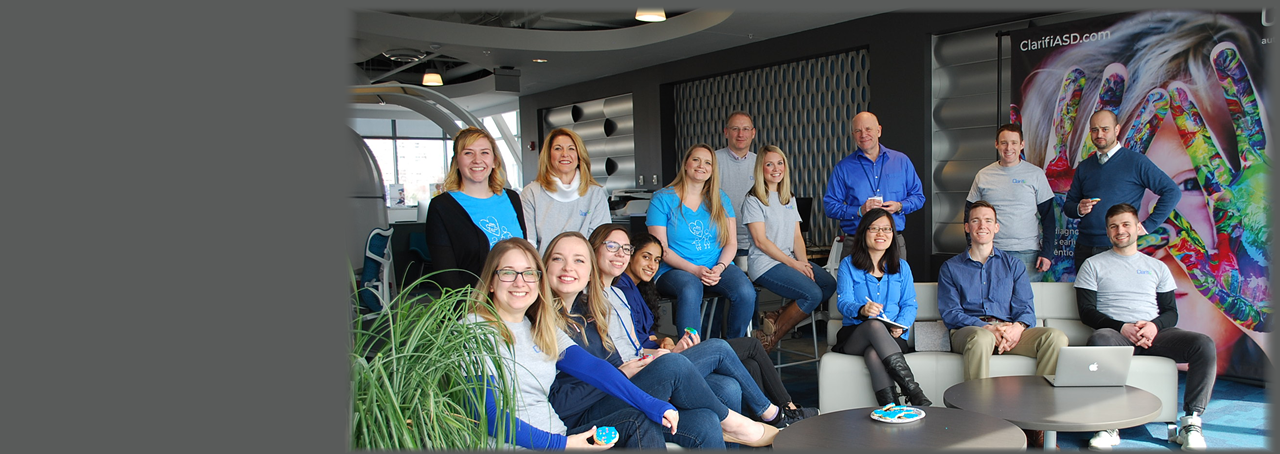Upstate Medical incubator helps steer biotech breakthroughs to market
A startup working to turn a scientific innovation into a successful product needs a great deal of support. That includes access to facilities, to state-of-the-art equipment and to the expertise one finds at a major research university.
The Central New York Biotech Accelerator is one of 17 SUNY business incubators that help to advance innovation, create jobs and drive economic development throughout New York State. Owned and operated by SUNY Upstate Medical University, the Biotech Accelerator opened in Syracuse in 2011 to give biotechnology startups crucial support they need to thrive.
Companies that locate there obtain lab and office space at below-market rates, share the use of equipment such as centrifuges and high-end microscopes and gain access to SUNY Upstate’s core research facilities. Many of those startups also form partnerships with Upstate faculty.
“For instance, they might work with faculty on partnered-pilot projects,” says Kathi Durdon, executive director at the Biotech Accelerator. “Or maybe they need to conduct clinical trials, or they require simulated environments, or clinical guidance and feedback.”
One of the newest clients to flourish in the Biotech Accelerator is Quadrant Biosciences, which is developing epigenetic tests for autism spectrum disorder (ASD), Parkinson’s disease, concussion injuries and other conditions.
Richard Uhlig, Quadrant’s founder and CEO came to the enterprise with long experience in business management. A self-described “recovering banker,” Uhlig held executive positions at Morgan Stanley, Merrill Lynch, the Federal Reserve Bank of New York and other institutions. For him, the main advantage of working in the Biotech Accelerator is the ability to complement his business expertise with resources available at SUNY Upstate.
“Having proximity to Upstate Med, and to the researchers and clinicians there, has been invaluable for us,” Uhlig says.
Uhlig started Quadrant about seven years ago, after his son was injured in an ice hockey game. “The way the doctor diagnosed him for concussion was the most archaic thing I’ve ever seen,” he recalls. Hoping to discover a better solution, Uhlig—a biology major in college—spent six months reading 20 years of clinical research. “I concluded there was something we could do to build quantitative, objective tools for clinical use,” he says.
Soon after, he started talking with Brian Rieger, director of the Upstate Concussion Center at Upstate Medical University’s Institute for Human Performance (IHP). Renting space within the IHP, Quadrant Biosciences was soon collaborating with Rieger on clinical research.
University scientists sometimes start companies to commercialize their inventions, or form partnerships with existing businesses. Uhlig did the opposite. Rather than spin a business out of a university, he “spun in,” bringing his business into Upstate for the sake of the many opportunities it offers.
“I needed access to patients,” Uhlig says. “I needed access to deep clinical knowledge and also to equipment that was beyond the capital means we had at the time.”
Along with Rieger, Quadrant also started to work with IHP’s Frank Middleton, an associate professor who was developing a saliva-based test for ASD. Middleton’s research focuses on epigenetic regulatory molecules, which control how factors in the environment turn specific genes on or off.
Uhlig decided that Quadrant would partner with Middleton. “We made a commitment to sponsor this research, we participated in it and we licensed the resulting technology from the university—truly a win-win for all involved,” he says.
Quadrant has grown quickly from a staff of five to more than 50 today. To accommodate that expansion, the company added space in the Biotech Accelerator, just up the street from the IHP, in 2018. The Accelerator houses Quadrant’s clinical research and operations teams and support functions such as finance and marketing.
Besides locating in the IHP and Biotech Accelerator, Quadrant has also benefitted from other New York State programs for new companies. It participates in START-UP NY, making it eligible for state tax benefits. It has also received technical assistance from the New York Small Business Development Center (NYSBDC), which named Quadrant Technology Business of the Year in 2018.
In December 2019, Quadrant launched its first product, Clarifi, an epigenetic test to identify children who are likely to have ASD.
“Autism spectrum disorder can have a profound effect on families,” Uhlig says. “Clarifi will support early diagnosis, which can lead to early intervention.” He predicts that Clarifi will change the average age of diagnosis in the U.S. from four or five years old to the second or third year of life—the time in a child’s development when therapeutic intervention is most effective.
Reviewers at the National Institutes of Health (NIH) have termed the science behind Clarifi “game changing technology.” Quadrant Biosciences has received more than $2.6 million in Small Business Innovation Research and Small Business Technology Transfer grant funding from the NIH. It was recently selected for the NIH Commercialization Accelerator Program (CAP), which features world-class guidance from experienced domain professionals. In recent years, NIH CAP has resulted in 50 acquisitions, more than $1 billion in non-government funding, and ten initial public offerings (IPO)s.
The company is also preparing a rapid, saliva-based test for concussion and an epigenetic test for early-stage Parkinson’s disease. It is also investigating potential tests for anorexia nervosa, schizophrenia, Alzheimer’s disease and others, Uhlig says.
The partnership with Upstate that produced Clarifi is a smart model for collaboration, says Durdon, adding that she would love to see more companies “spin in” to the Biotech Accelerator, utilizing Upstate’s clinical expertise and state-of-the-art facilities. “The company gets champions, validation of the product and potential therapeutically-aligned advisory board members.”
comments powered by Disqus


